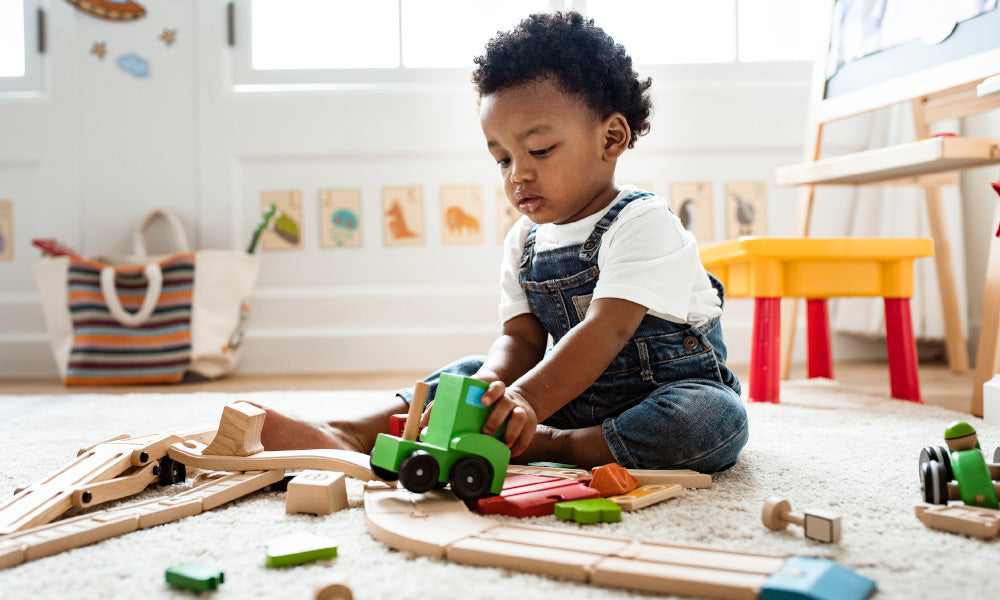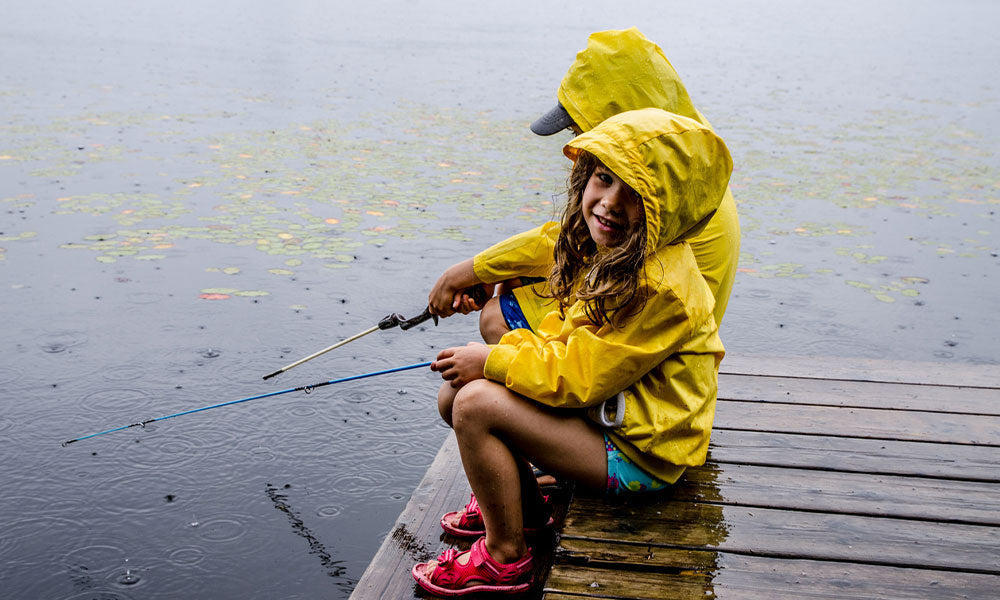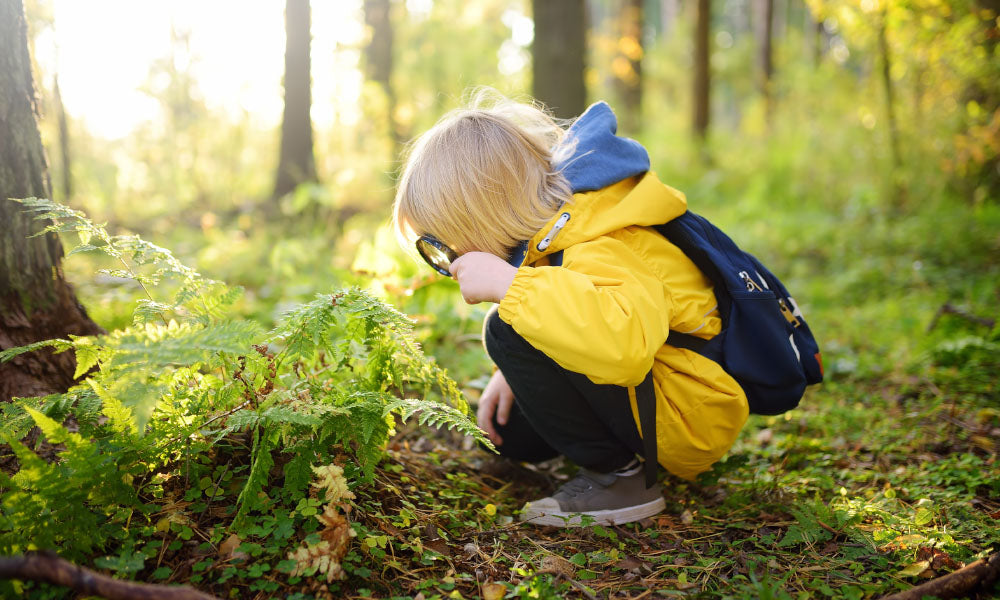Sensory experiences can help calm kid’s anxiety, increase focus and concentration, and reduce misbehavior. It can even help make bedtime easier!
Although focusing on sensory experiences is highly beneficial for kids, kids will not all react to these experiences in the same way. While sensory experiences have often been associated with children with special needs, they can help increase focus and concentration and calm anxiety and hyperactivity in all kids.
The available research suggests that incorporating sensory experiences to children’s everyday experiences can make it easier to meet the needs of even the most challenging among them. Below are five practical tips to help you incorporate sensory experiences to help your child find calm.
1 | Create a “sensory space”
A “sensory space” is a space filled with varied sensory resources where your kid can find calm. Creating a specific space has been found to help kids struggling with anxiety and anger. In one study, researchers created a “sensory room” filled with a variety of resources such as a mood lamp, a projector, aromatherapy, music, and bubble tubes. The researchers observed and recorded how often each child visited the sensory room.
The results showed that the kids who visited the sensory room most had greater self-esteem and also improved emotional well-being. A “sensory space” does not necessarily have to be a “physical space.” An alternative can be a “sensory box” where you put a variety of sensory items that your child can pick and use whenever he feels the need to. Varying the objects – smooth surfaces, rough surfaces, different smells – makes the sensory experience more fulfilling.
2 | Turn to aromatherapy
The sense of smell is a powerful sense connected to the brain. This explains why essential oils impact behavior. Research suggests that aromatherapy can have a healing and calming effect. There are different ways that aromatherapy can be used to make the sensory experience even more powerful. For instance, combining smell and touch by using essential oils to massage your child’s feet or toes can have an immediate calming effect.
The possibilities are endless when it comes to using aromatherapy but not all essential oils are appropriate to use with children. Before using essential oils with your child, inform yourself about the precautions to take and the oils best adapted to calm kids’ anxiety and hyperactivity.
3 | Provide multisensory experiences
In one study that sought to determine whether multisensory experiences helped children learn better, researchers associated different colors with music, scents, art, poetry, literature, and colored lights. They found that children who were taught colors using multisensory experiences were better able to learn different colors.
Multisensory experiences are those that enable kids to use their different senses. For example, aromatherapy play dough helps kids engage their sense of smell and touch. Remember, however, that all essential oils used with kids should be safe for them and should be diluted first if they are to come into contact with your child’s skin. Another multisensory experience could be playing soft music as your child is playing with her blocks or with sand.
Toys can be great multisensory play opportunities. Let baby’s senses soar with the Baby Einstein Roxy’s Bright Flight Musical Toy. This interactive handheld toy keeps little ones engaged on the go with playful textures, classical melodies, bird sounds, and glowing lights. As baby presses and explores, they’ll develop fine motor skills while discovering the magic of cause and effect.
4 | Incorporate sensory experiences throughout the day
Any activity that encourages children to use their senses is a sensory activity. Playing with water or grains, smelling the roses, jogging, running, playing with sand, listening to music, and dancing are all sensory activities. Different activities respond to different sensory needs. Activities such as swinging, jumping on the trampoline, and doing aerobic exercises release endorphins that help decrease anxiety.
Chewing chewy foods, sucking or blowing are different sensory experiences that may also have a calming impact on your child. Finger painting is a great sensory activity. Incorporating different activities throughout the day is a great way to help your kid find focus and calm.
5 | Use deep pressure and movement sensory activities
The pressure exerted by weights has been found to help calm kids’ anxiety and hyperactivity. For instance, weighted blankets have been found to create a natural calming effect. Although they are frequently used with children with special needs (for example autism), they are also effective with high-energy kids. Many parents have reported benefits with their children, including better sleep, waking up more rested, and happier and more focused kids.
By exerting pressure on the body, weighted blankets release neurotransmitters that have been proven to have a calming effect on the body. Wrists and ankle weights may also have the same effect. Activities that involve heavy work – raking leaves, pushing against a wall, pushing a heavy cart – have also been found to be effective in focusing kids’ attention and reducing anxiety.
(While the information provided here can help calm anxiety and hyperactivity in all kids, it is provided for informational purposes only. If your child has a sensory processing disorder, please contact your therapist before trying the activities proposed above.)



